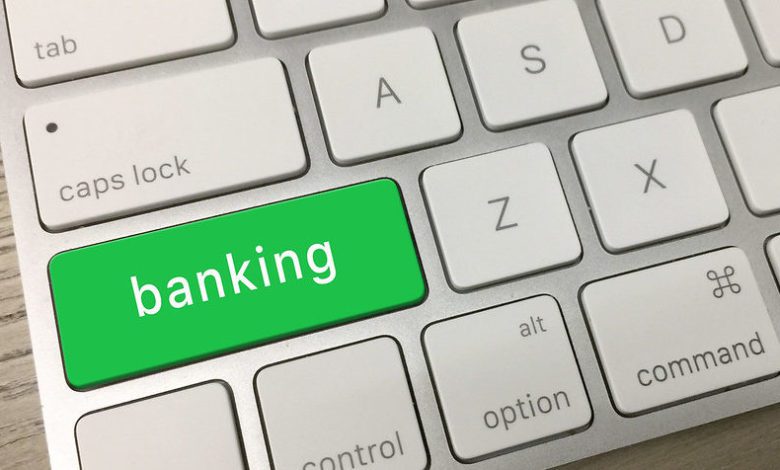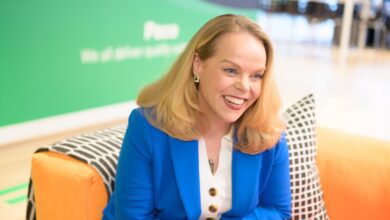
The last decade has been one of the most transformative periods in modern banking. We’ve seen new challenger banks rising up to compete against the traditional high street giants, as well as an explosion in the use of mobile banking for personal and business purposes. And, in recent years, there has also been the introduction of Open Banking, which gives third-party financial service providers open access to consumer banking, transactions, and other data from financial institutions.
Open Banking was imposed by the Competition and Markets Authority (CMA) to open up competition between banks and make customers’ banking information more accessible to third parties. Paired with other new innovative technologies, including artificial intelligence (AI), it is a key element in building an alternative to the teetering piles of paperwork notoriously associated with accounting and has the power to change the day-to-day lives of accountants and more broadly, the world of finance.
The UK’s ten largest banks and building societies are now committed to support Open Banking connections, meaning they must allow regulated businesses to access their customers’ financial data, as long as the customer has provided permission. And in a world where online technology and flexible working are rapidly becoming the accepted norms, this clarity over data has never been more important.
Over the last five years, in particular, there’s been a significant shift towards flexible working in the UK, with millennials, in particular, showing a strong desire to work away from the office.
A survey conducted with over 19,000 working millennials across 25 countries revealed their top five priorities when looking for a job, while nearly 4 out of 5 (79%) chose flexible working. Further analysis from BBC 5 Live showed there had been a 74% jump in the number of people working from their own home between 2008 and 2018.
It’s a trend that has been further accelerated over the past month by the ongoing coronavirus pandemic, which has seen millions of UK employees and business owners being urged by the government to stay at home and work remotely if they can.
For the accountancy profession, it’s meant that many accountants are now finding themselves away from their traditional office or work spaces, with technology acting as the glue holding their own practices – and their clients’ businesses – together.
Secure, reliable, real-time access to clients’ financial data is now an absolute must-have for accountants, so Open Banking is essential for the profession – not just during the short-term Covid-19 lockdown, but also for the future.
Being able to review up-to-date banking data every single day means that it’s no longer necessary to chase clients for all the necessary information that accountants need to do their day-to-day work, or wait for third-party bank feeds to update.
This also benefits the clients, as they can continue with their daily workload knowing that their bank transactions are being shared with their accountants directly, accurately and automatically. Suddenly their do-list looks a bit shorter.
The bane of many an accountant’s life – paperwork – can also be minimised using Open Banking. One of the greatest benefits of technology and online accounting is that it alleviates the stress of keeping important information in physical files.
As well as less mess in the office and less space taken up by filing cabinets, this means invoices, expenses, and usual scraps can all be stored securely online. Those files are then easily found through intelligent search, driving forward efficiency and saving time.
Luckily for accountants, and also for the environment, Open Banking and cloud software platforms ensure that every important document is stored safely online, all in one place. Already, cloud accounting software makes it possible to have one tidy dashboard that gives an overview of business in its entirety.
As well as being the guardian of files, using technology to set up a bank feed will allow accountants to track incomings and outgoings, link invoices and payments, and view interactive charts of all accounts.
With more efficient processes and easier methods of making and tracking transactions, technology and Open Banking will ultimately free up a whole lot of time for accountants. By clearing up the calendar, this makes room for new kinds of work and enables accountants to spend more time on consultancy and value-added services, where previously these may have been perceived as a bonus service or, from the client-side, a service at a much larger additional cost.
As well as consultancy, these technologies will have other, less direct impacts on the client-side – for example, instead of needing a shoebox full of receipts, Open Banking and AI will reduce the need for paperwork and lead to more confident and self-managed clients. And iIf a client is keeping accurate books themselves, then the accountant no longer has to do all of the numerical admin, rather the value add lies in analysing the numbers and providing useful advice.
Ultimately, this could open the gateway to a more efficient and effective accountancy industry. By embracing new technology, accountants have the power to ultimately streamline their current workloads and save themselves from mundane, stressful tasks, while at the same time benefiting clients by making space for consultancy and added value services.
The signs suggest that forward-thinking practices and accountants are already starting to see the enormous opportunities that Open Banking and AI can offer, and are increasingly embracing technology in order to give them a competitive edge in these challenging times. My hope is that the rest of the profession will not be too far behind them.
Ed Molyneux, CEO and co-founder of cloud accounting software company, FreeAgent









